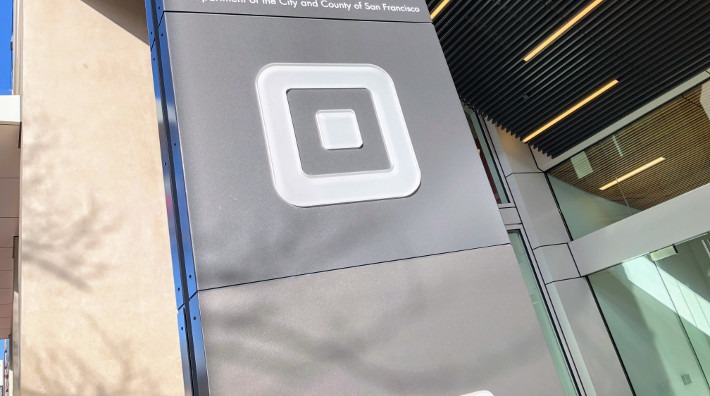Articles by deBanked Staff
First Criminal Charges in MJ Capital Funding Saga
September 6, 2022 Criminal charges have finally been introduced to the MJ Capital Funding ponzi scheme saga. Last week, 29-year-old Pavel Ramon Ruiz Hernandez was charged by federal prosecutors with Conspiracy to Commit Wire Fraud. According to the allegations, Hernandez helped manage the operations of MJ Capital and oversaw significant fundraising efforts for the company while knowing that the business was a ponzi scheme. All told, it’s alleged that he and his co-conspirators defrauded investors out of $42 million.
Criminal charges have finally been introduced to the MJ Capital Funding ponzi scheme saga. Last week, 29-year-old Pavel Ramon Ruiz Hernandez was charged by federal prosecutors with Conspiracy to Commit Wire Fraud. According to the allegations, Hernandez helped manage the operations of MJ Capital and oversaw significant fundraising efforts for the company while knowing that the business was a ponzi scheme. All told, it’s alleged that he and his co-conspirators defrauded investors out of $42 million.
MJ Capital Funding pretended to be an MCA provider but did not actually operate an MCA business, nor was the company known within the MCA industry.
Much of the investigations have focused on Johanna M. Garcia, the CEO of the company, but to date she has not been criminally charged.
If Ruiz Hernandez is convicted, he faces a maximum penalty of 20 years in prison, the DOJ states. The MJ Capital ponzi scheme is reported to have affected over 9,000 investors.
NerdWallet Comments on Fundera’s Contribution to Its Business
August 30, 2022 When NerdWallet acquired Fundera two years ago, few people were shocked. That’s because the nation was months into the covid crisis and M&A was happening at a furious pace. The $29.2M paid at closing with a potential earn-out of up to $66M, however, suggested Fundera stood to play a significant role with the company, especially given that NerdWallet generated only $379.6M in revenue in 2021.
When NerdWallet acquired Fundera two years ago, few people were shocked. That’s because the nation was months into the covid crisis and M&A was happening at a furious pace. The $29.2M paid at closing with a potential earn-out of up to $66M, however, suggested Fundera stood to play a significant role with the company, especially given that NerdWallet generated only $379.6M in revenue in 2021.
More recently in Q2 2022, the SMB side of NerdWallet’s business has been doing well. NerdWallet CEO Tim Chen said, “This past quarter, our SMB business continued its momentum with triple-digit year-over-year revenue growth.”
While Fundera’s SMB loan generating business contributed to that, Chen said that NerdWallet had been successful in “landing and expanding within new SMB areas such as payments, insurance and accounting services.”
“The progress we’ve made since the Fundera acquisition is not only great news for SMB, we also think it underscores opportunities enabled by vertical integration more broadly,” Chen said. “Given this success, we furthered our vertical integration efforts through our acquisition of On the Barrelhead, a loan matching platform that connects consumers and SMBs with products from its lending partners.”
“…We are increasingly encouraged by the success we’ve seen in SMB,” said NerdWallet CFO Lauren StClair Waugh, “and we have shown our ability to run our integration playbook and direct our strong organic traffic through Fundera’s efficient and reoccurring funnel.”
NerdWallet has been pleased with its acquisitions.
“We’re going to be very prudent about our M&A strategy, and price will remain an important consideration for us in evaluating all opportunities,” Chen stated. “At times, macroeconomic volatility will present opportunities to buy great businesses at reasonable prices. This was the case with both Fundera and On the Barrelhead. We will continue to take an opportunistic approach to M&A in the future to further accelerate and enhance our capabilities.”
NerdWallet generated $125.2M of revenue for the quarter and a net loss of $9.3M.
Arrangements for Nick Gregory of CDG: Rest in Peace
August 29, 2022Nick Gregory, a co-founder and partner of both Central Diligence Group and Capital Dude, passed away suddenly last Thursday. Gregory was a well-known and beloved 16-year veteran of the small business finance industry. If you’d like to pay your respects, please take note of the following arrangements:
Wake Location:
Roslyn Heights Funeral Home
75 Mineola Ave
Roslyn Heights, NY 11577
Tues August 30th: 3-5PM, 7-9PM
Wed August 31st: 3-5PM, 7-9PM
Mass:
Thurs September 1st, 10AM:
St. Mary’s Roman Catholic Church
110 Bryant Ave, Roslyn, NY 11576
-Funeral Procession to Cemetery-
Burial:
11:30-11:45AM:
Cemetery of the Holy Rood
111 Old Country Rd, Westbury, NY 11590
Only Two Months Until Broker Fair!
August 24, 2022Broker Fair is officially TWO MONTHS away! Taking place at the New York Marriott Marquis in Times Square, New York City, this event is shaping up to be the BIGGEST conference for the small business finance industry in all of 2022.
Don’t wait too late to register. These events sell out. Book your room and get your ticket now to secure your opportunity to network with and learn from who’s who in the small business finance universe!
Prosper Marketplace Originated $891.9M in Loans in Q2, Records $42.6M Profit
August 23, 2022 Despite some uncertainty in the lending markets, Prosper Marketplace had a fairly good quarter. The company originated $891.6M in loans in Q2, nearly double the volume over the same period last year. Profitability too was there, coming in at $42.6M, up from a loss of $5.8M in Q2 2021.
Despite some uncertainty in the lending markets, Prosper Marketplace had a fairly good quarter. The company originated $891.6M in loans in Q2, nearly double the volume over the same period last year. Profitability too was there, coming in at $42.6M, up from a loss of $5.8M in Q2 2021.
Notably, Prosper did acknowledge that the fair value of its loans were being affected by an increase in capital markets volatility and benchmark interest rates but neither were enough to hurt the company.
Prosper is a holdout of the peer-to-peer lending era in that it still has a “note channel” for investors. Ninety-one percent of all loans funded in the second quarter, however, were done through the Whole Loan Channel, up from 87% during the same period last year.
Prosper is in the business of originating consumer loans with 3-5 year terms and interest rates ranging from 5.31% to 31.82%.
Kaplan Mobray to be Keynote Speaker of Broker Fair 2022
August 9, 2022 Kaplan Mobray has been selected as the keynote speaker of Broker Fair 2022!
Kaplan Mobray has been selected as the keynote speaker of Broker Fair 2022!
About Kaplan
“Recognized by Meetings and Conventions Magazine as one of the nation’s top business speakers” Kaplan Mobray is one of the world’s most dynamic and inspirational business speakers and award-winning author of “The 10Ks of Personal Branding.”
Wharton-educated, Kaplan draws from his over 15 years of corporate experience as a successful business executive where he led corporate marketing, advertising, brand development, and workforce diversity initiatives for Fortune 500 companies.
Kaplan has received worldwide acclaim and numerous awards for his leadership and branding insights. He helps organizations develop world-class leaders and build a high-performance workforce.
He has been featured on CNN, FOX, Businessweek, The Wall Street Journal, Ad Age and shares his message to NFL players and fans annually at the Super Bowl. Prior to his speaking career Kaplan served as U.S. Diversity Programs Leader at Deloitte. Kaplan also serves on the corporate advisory board of ALPFA, the nation’s largest Latino professional association.
Through his latest venture, Kaplan is revolutionizing high performance learning through the Kaplan Mobray Leadership Institute Elevate Your Career, Elevate Your Life curriculum.
He serves as a consultant to fortune 500 companies, an advisor to the nation’s top business schools and a brand coach to professional athletes.
All of his innovative presentations have been described as life changing events. In his personal pursuits, Kaplan is a professional saxophone player. Kaplan resides in West Nyack, NY and is active in civic and charitable organizations.
Register today
Upstart Has Quietly Entered the Small Business Lending Market
August 9, 2022 Upstart, once known as the AI-fintech lender for student loans, has gradually added products over time. Today, the company has entered the small business lending market, making good on the plans it announced last year.
Upstart, once known as the AI-fintech lender for student loans, has gradually added products over time. Today, the company has entered the small business lending market, making good on the plans it announced last year.
Launched shortly before the close of the 2nd quarter, Upstart CEO Dave Girouard said during the earnings call that “We’ve already seen some more than 40 small business loans originated, totaling more than $1 million in principal in just a few weeks.” He further added that the company is “well ahead of schedule” in terms of rolling the program out.
“That team is quickly ironing out operational issues with an eye toward rapidly expanding this product in the coming months and years,” Girouard stated.
Previously, Girouard acknowledged that small business lending is becoming a crowded field.
“While there is no shortage of credit options to business owners, we aim to deliver the zero-latency affordable credit solution that modern businesses require,” he said last year.
There is a lot on the line for Upstart with this new product. Its core consumer lending business experienced a setback in the 2nd quarter when revenues declined on weaker demand for loans originated through its marketplace.
“In the last few months, lenders and institutional credit investors reacted more quickly and abruptly than we anticipated,” Girouard said. “Despite the fact that our bank partners have seen consistently strong credit performance, meaning portfolios performing at or above plan across quarterly cohorts, several of them have paused or reduced originations due to fear about the future of the economy.”
Square Loans Originated $1.01B in Q2
August 4, 2022 Square Loans originated $1.01B in the second quarter, up from $756M in Q1. During the earnings call, Block (formerly Square) CFO Amrita Ahuja said that the company is using the discipline it maintained on risk with Square Loans with other growing segments of its business. The fact that its business loans are short duration has been key to that success, the company said.
Square Loans originated $1.01B in the second quarter, up from $756M in Q1. During the earnings call, Block (formerly Square) CFO Amrita Ahuja said that the company is using the discipline it maintained on risk with Square Loans with other growing segments of its business. The fact that its business loans are short duration has been key to that success, the company said.
“The unique structure of our products is really designing our products to simplify access to capital for customers and to make it easy to pay them back,” Ahuja explained. “These products are generally short duration, and they have a simplified repayment process, including, for some products, being first in that payback priority. And these generally are short-duration. Square Loans is well less than a year in terms of duration.”
The company trumpeted a loss rate on Square Loans that has remained under 3%.






























